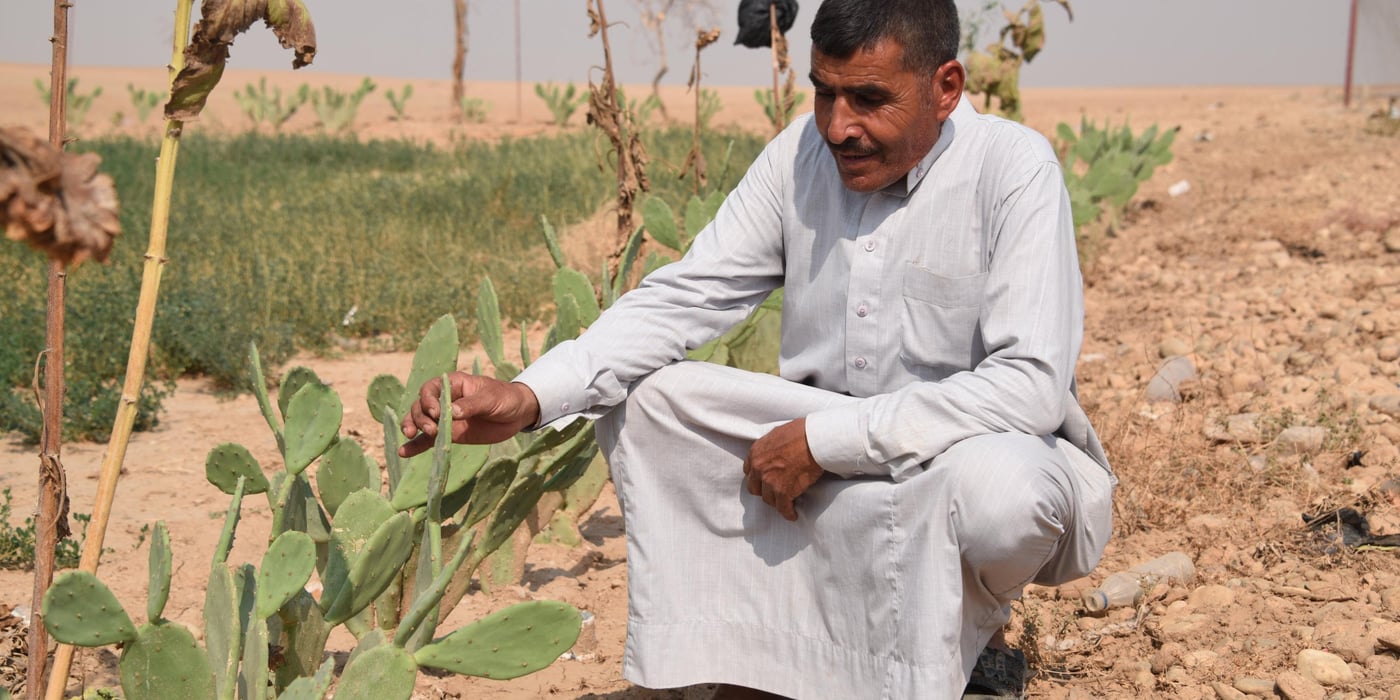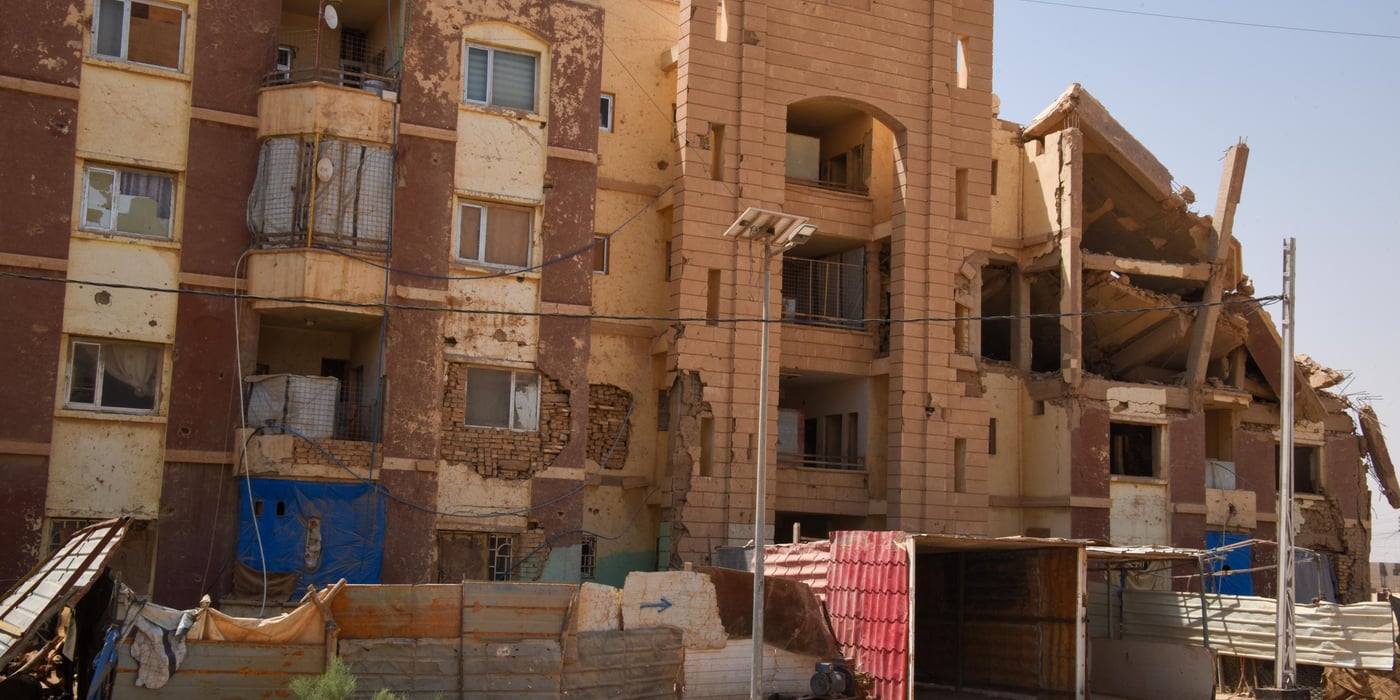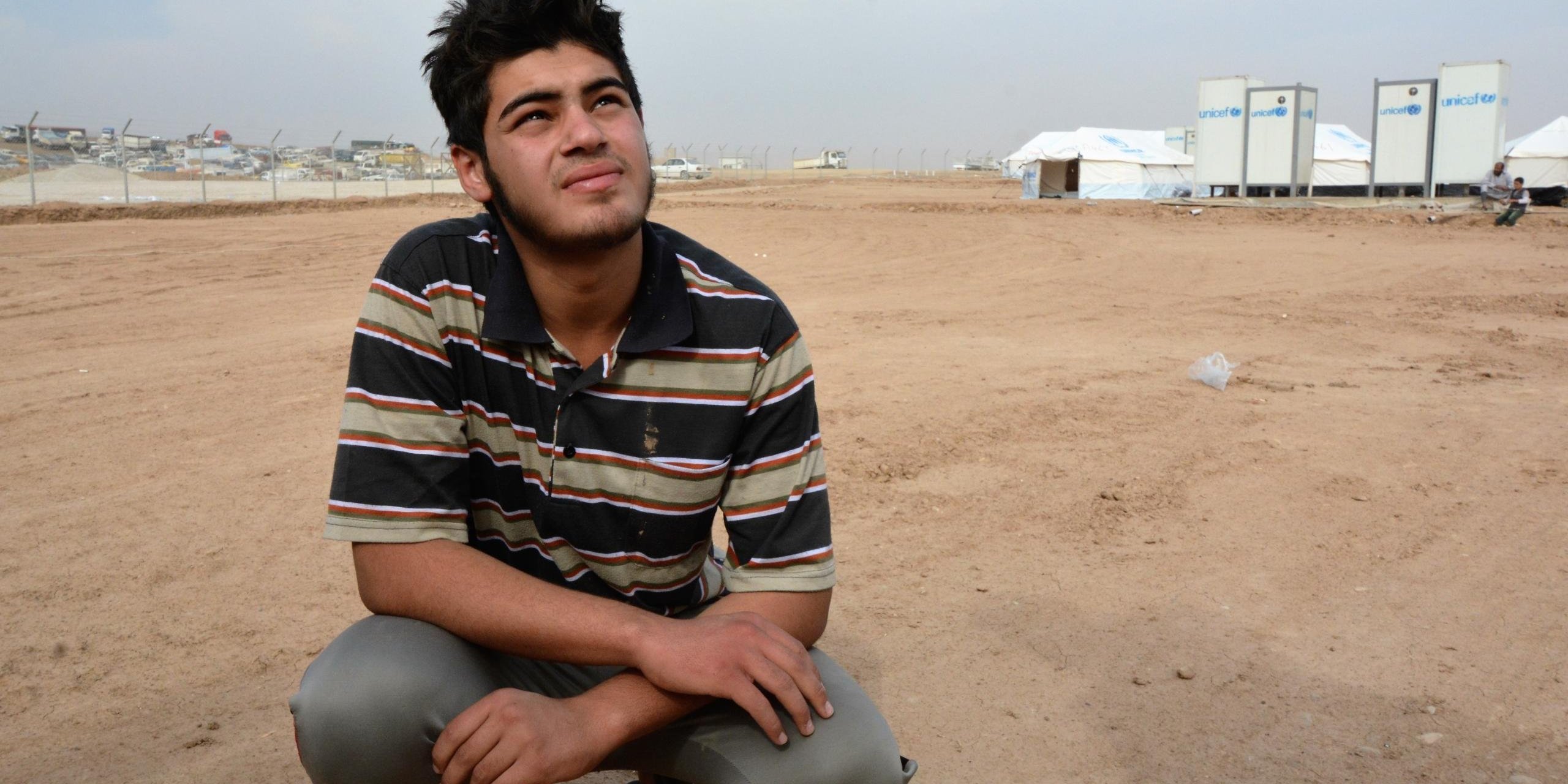
He was learning English in school. But when ISIS captured Mosul city in 2014, they shut down all schools and colleges. Seker hid inside this house for two years to avoid being forced to join the armed group.
“We were not free to choose what we wanted,” he says.
Trapped inside
One day, ISIS threatened to beat Seker’s 14-year-old sister as she was out in public and her eyes were showing. After that, his mother kept all three sisters hidden in the house at all times. For a year and a half, the siblings did not venture outside, not even to the roof of their house.
After the Iraqi government forces launched an offensive on 17 October to retake the city, Seker and his family fled their home. On 6 November, they arrived in Hasansham displacement camp, about 14 kilometres from Mosul.
So far, over 42,000 people have fled Mosul and its outskirts.
Seker and his family now live in Hasansham camp, which was set up on 4 November to receive the overflow of newly displaced civilians who had fled the besieged city in the previous few days. Aid agencies like the Norwegian Refugee Council are on the ground, providing assistance to families as they flee to safety.
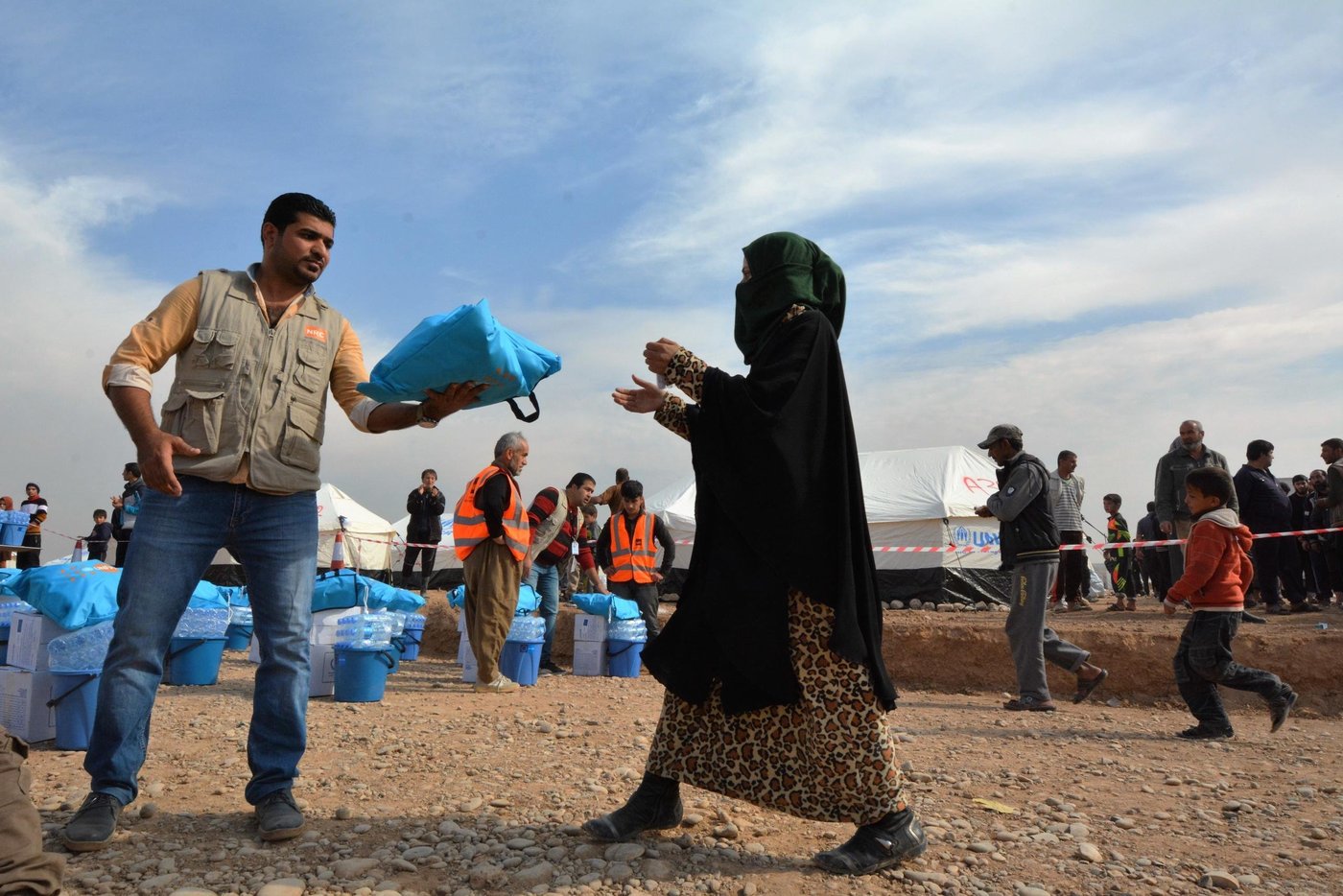
Emergency response
In the morning of 8 November, the NRC rapid response team arrived in the camp, armed with welcome packs for newly arrived families. The packs contain basic necessities like canned food, water, hygiene kits, towels and toothbrushes. They are to be given out to over 900 people who arrived late the night before, after fleeing Mosul city, just 14 kilometres away.
Since May 2016, NRC has provided emergency humanitarian assistance to families fleeing their homes in towns and villages around Mosul.
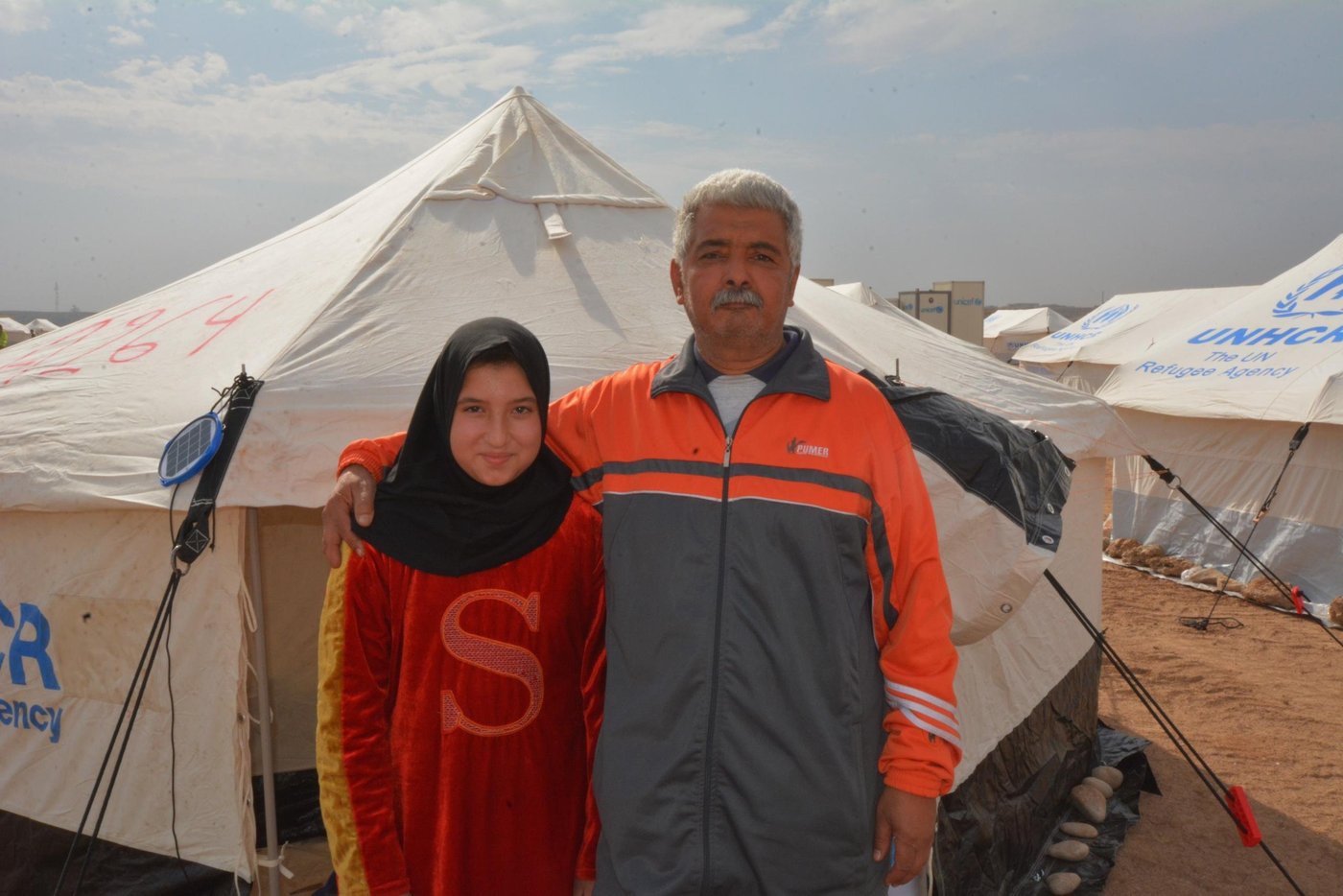
“We don’t know if they are alive”
“I was top of my class” recalls Zeena. “But ISIS came and I didn’t go to school for two years. Now I can’t remember my multiplication tables,” says Zeena.
She begins to cry.
“She is sad because her grandmother and uncle are still trapped inside the city,” her father says. “ISIS don’t let people have mobile phones, so we don’t know if they are alive.”
Zeena’s mother points to the marks on her face and stomach where a car bomb exploded close to their house. That was the turning point when they decided to flee the city.
But while all three of them have escaped the oppression of ISIS and are inside Hasansham displacement camp, Zeena’s mother is still too afraid to have her photo taken, still shaken afraid of ISIS.
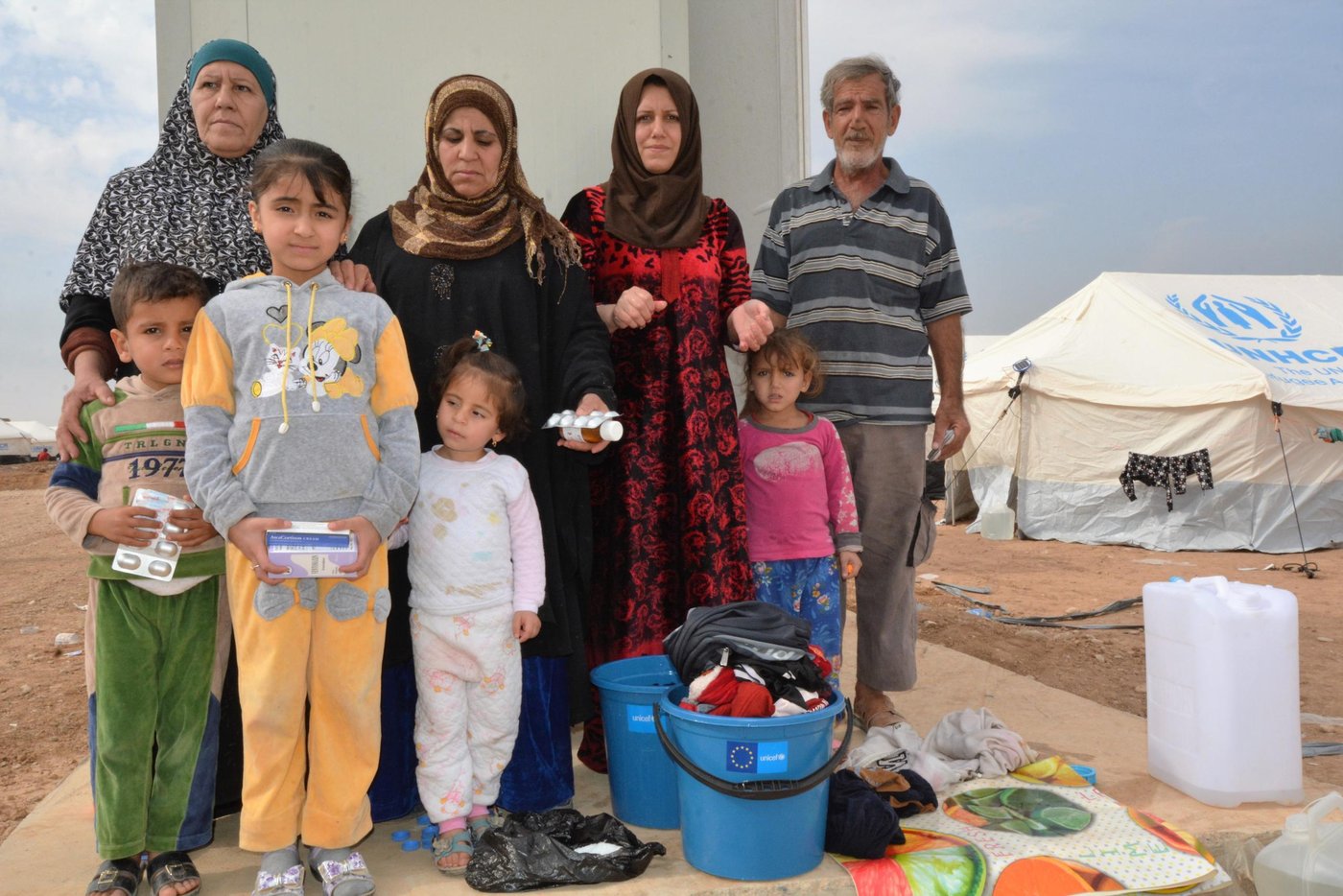
Fleeing from ISIS
Among the newest residents to Hasansham displacement site are Suha and her family.
Less than a week ago, Suha’s house collapsed in the fierce battle between the Iraqi forces and ISIS, in the government forces’ offensive to recapture the city. Suha and her family fled Mosul.
“We didn’t think we would make it out alive. My father is disabled, so my husband carried him on his back all the way to this camp,” she says.
The sound of bombs echo in the distance. A subtle reminder that the frontline of Mosul’s battlefield is only 14 kilometres away.



